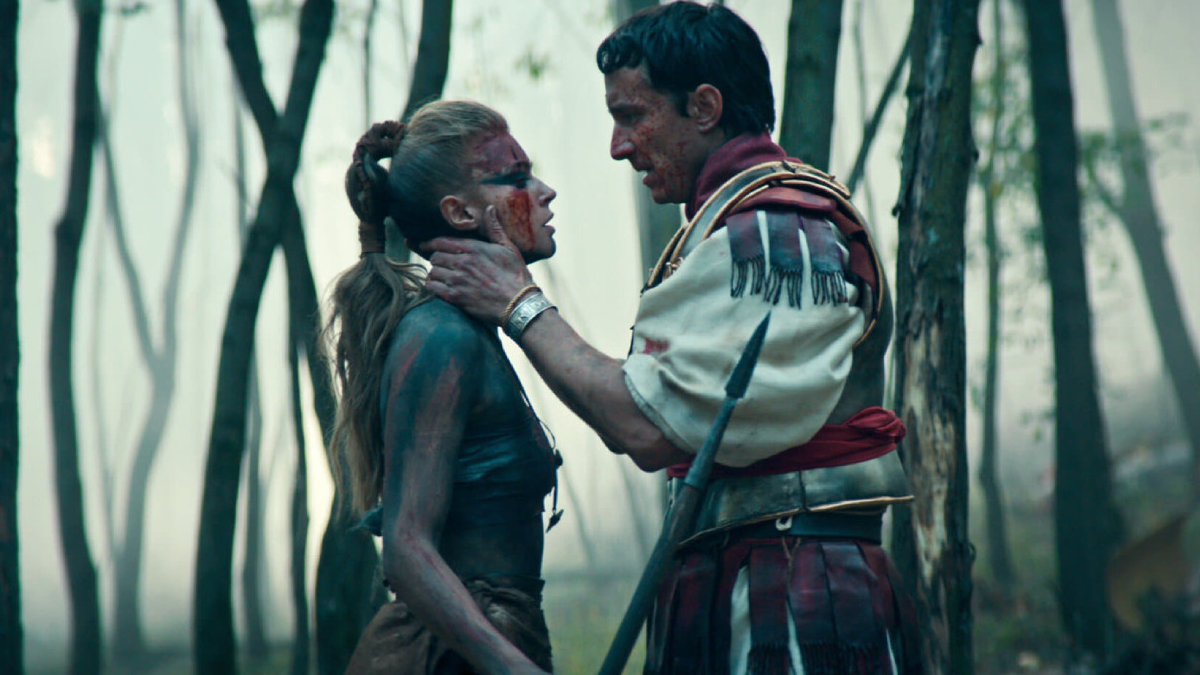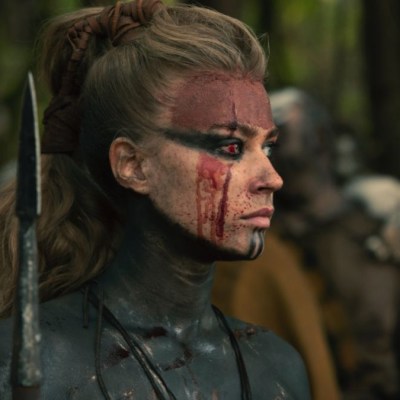Warning: contains Barbarians spoilers
Barbaren – to give Barbarians its original German title (which you should, because then you can sing it to the tune of The Beach Boys’ Barbara Ann) appears to have been a massive hit for Netflix. It came out of nowhere in the last week of October and whipped straight into the streaming service’s Top 10.
It would be unusual then, if Barbaren weren’t renewed for a second season. Though there’s no official word yet – and Netflix has been slashing and burning through a pile of single season new commissions of late – fans should be hopeful about the chances of a return for the German-language historical drama.
Based on real-but-jazzed-up historical events, season one concluded with the climactic Battle of the Teutoburg Forest in 9 CE. Luckily for us, history kept going after that, and Barbarians co-leads Arminius and Thusnelda (played by Laurence Rupp and Jeanne Goursand) feature in several subsequent chapters that would provide ample inspiration for more TV drama.
Season one focused on the internal identity conflict of Arminius, the Germania-born son of the Cherusci tribe’s Reik (or leader) who was raised in Rome as a noble hostage by his people’s enemy. Over six episodes, Arminius transitioned from Roman knight to Cherusci rebel, betraying his Roman upbringing and uniting the Germanic tribes to revolt against the empire of Augustus Caesar in a climactic battle that humiliated the Roman army.
Flavus and The Battle of Idistaviso
Season two could skip forward five or so years to explore a battle widely viewed as the Roman retaliation for the Teutoburg Forest ambush: The Battle of Idistaviso (also known as The Battle of Weser River and The Battle of Minden). It was fought in 16 CE between the Romans, led by Germanicus, and the Germanic tribes, led by Arminius. What makes this particular military clash ripe for dramatic adaptation is that serving under Germanicus was none other than Arminius’ younger brother Flavus.
Like Arminius, Flavus (not his real name but thought to be a nickname relating to his blonde hair) was taken from his Cherusci home and raised in Rome. Unlike Arminius, Flavus stayed loyal to his Roman captors and fought against the people of his homeland. You can picture it now – two brothers on opposite sides of the battlefield, both fighting for the place they call home.
Read more
Add to which a truly dramatic backdrop for the battle, which saw the Germanic army suffer a destabilising defeat. In the account by Roman historian Tacitus, several of the retreating Germanic soldiers attempted to swim to safety across the Weser River, but were brought down by “a storm of projectiles or the force of the current”. Those that climbed trees to escape the slaughter were picked off by Roman archers.
Germanicus’s Triumph, Thusnelda’s humiliation
The battle was such a success for Roman general Germanicus that he was granted a ‘Triumph’ back in Rome to celebrate his victory (the Roman equivalent of a winning sports team travelling around the town centre in an open-topped bus, spraying champagne and taking selfies). One feature of Germanicus’ Triumph in particular would make for excellent TV: the parading of the captured Thusnelda and her infant son.
Barbarians season one left us with the cliffhanger that Thusnelda, wife of Arminius but lover of Folkwin Wolfspeer (an invention of the series and not a real person from history), was pregnant with Folkwin’s child. Complicating the love triangle even more is the vow that Folkwin made to the Germanic gods to sacrifice his first-born child in return for their help. Thusnelda, we imagine, won’t look kindly upon that.
In history, a pregnant Thusnelda was captured by Germanicus after her Roman-sympathising father Segestes delivered her to the Roman general in exchange for the protection of his army. She gave birth to Arminius’ son who was raised in Rome and is believed to have been educated at a school for Gladiators, though historical details are sketchy from that point onwards.
A new location in Rome?
The battle, the enemy-brother, the baby, the Triumph, the capture, the sacrifice… there are endless plot possibilities for a potential next season of Barbarians. Budget notwithstanding, the show could also introduce a new location in Rome, where Flavus, Germanicus and later, Thusnelda would be based.
There’s even enough for more after that. Arminius lived until 21 CE, which gives him over a decade from the season one finale battle. He went on to a famous enmity with a leader called Maroboduus, a Roman-raised Marcomanni tribal king who formed a confederacy with neighbouring Germanic tribes and refused to join Arminius’ war against Rome. Season three, anyone?
Barbarians is streaming now on Netflix.


